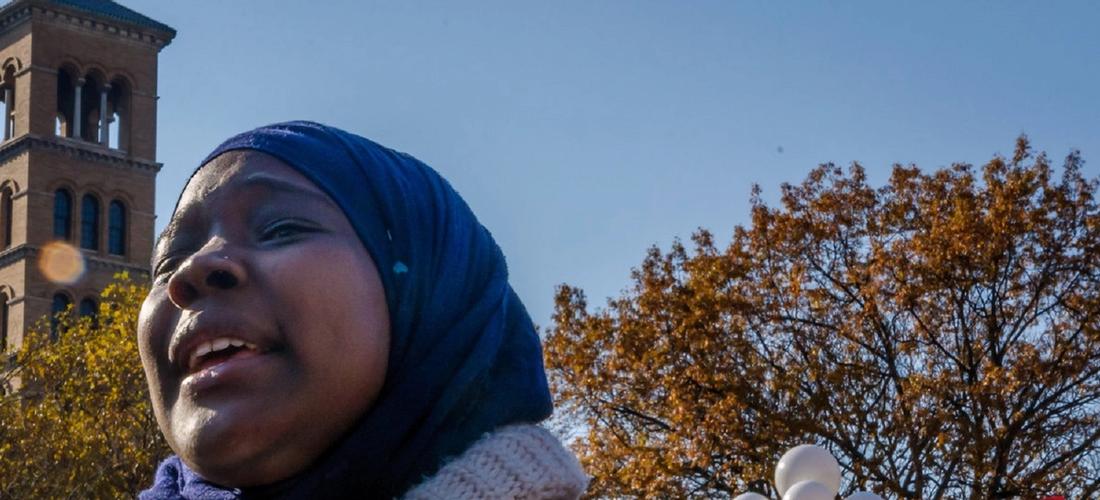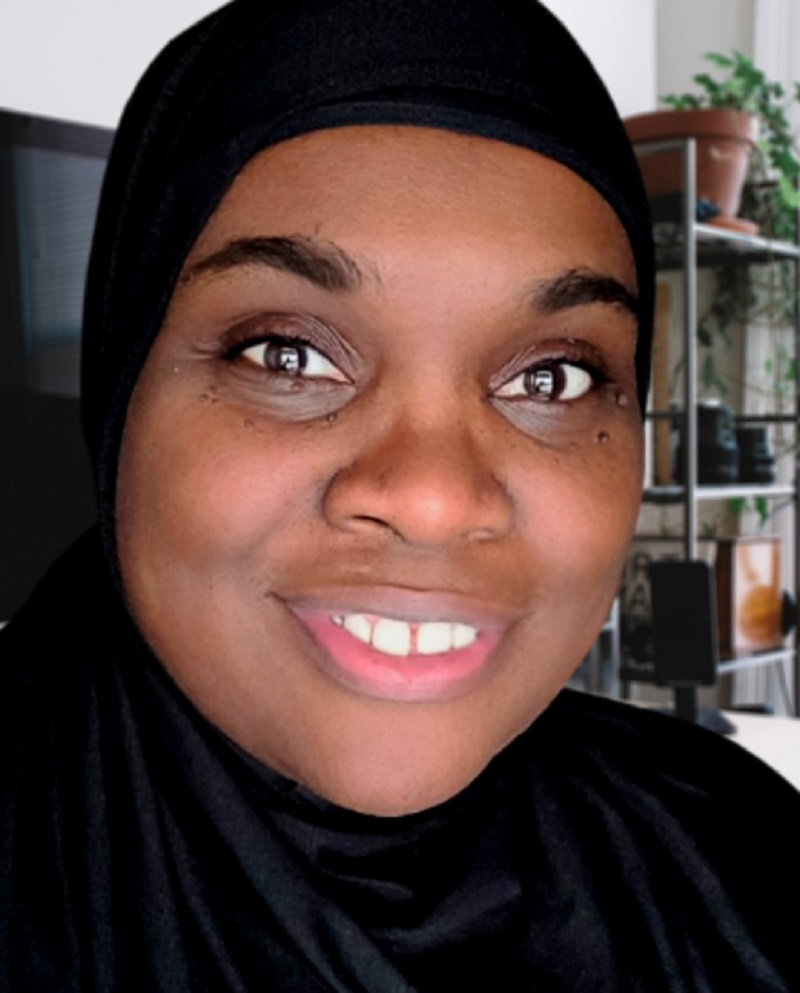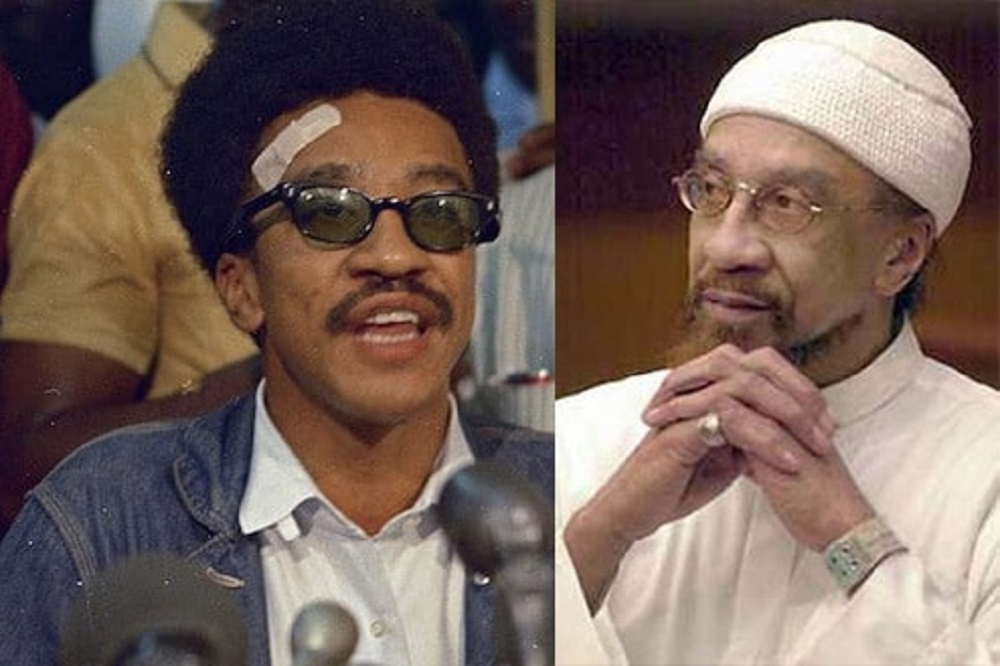On Joy and Trauma – How Black History Month Sits Differently for Black Muslims
Current Events
|
Feb 8, 2021
|
5 MIN READ

Photo by Erik McGregor; Twitter
I wiped the tears on my cheek with the back of my hand, blinking to see the words on the screen. I took a deep breath and resumed writing, unable to stop the sobs joining the clicking sounds of my keyboard. I continued to write about COVID-19 vaccinations and the historical trauma of medical racism that caused the pain and deaths of so many African Americans. Outlining the continuum of bias and dehumanization that continues to affect the lives of Black people in this country required that I face the generational agony that affects so many of us.
I should have stopped, but that was not an option I could give myself. As a Black Muslim writer, I had a chance to highlight a valuable perspective in the social dialogue, the Black experience, which is important for everyone to appreciate. However, it does come at a price, one we pay frequently when looking at the layers of our past and present experiences through lenses like Black History Month (BHM).
Why Black History Month
A month of centering the Black experience proved to be an essential part of recognizing issues with our country’s national narrative and history. American history is saturated with whitewashing, venerating whiteness and promoting white supremacist ideals that send a message that our nation is exclusively for a certain segment of the population. I spent years in higher education deprogramming students who were products of a public education system that conditioned them to see America through filters of white supremacy and a global cultural veneer that makes American-ness and whiteness synonymous.
The atrocities set upon Black, Indigenous and people of color to forage and develop this nation rarely gets adequate coverage in most classrooms, and their innovations and triumphs often are suppressed in favor of promoting the lie that our country was built by and grew through the exclusive efforts of white people.

The author, Layla Abdullah-Poulos
Black History Month encourages people to look past white-supremacist-framed history and social messages and expand one’s knowledge about Black people and appreciate the need to deconstruct internalized bias anti-Blackness, a disease of the heart that the Prophet Muhammad (saw) warned us against. From the last sermon of the Prophet:
"All mankind is from Adam and Eve, an Arab has no superiority over a non-Arab nor a non-Arab has any superiority over an Arab; also a white has no superiority over black nor a black has any superiority over white except by piety (taqwa) and good action." (Al-Bukhari, Hadith 1623, 1626, 636)
Many Muslims can and should see this month as an opportunity to appreciate Black Muslims and people and work to diminish issues of anti-Blackness in our communities. I see this happening, but it isn’t always authentic.
BHM Hits Different for Black Muslims
Over the years, I have noticed a surge in Black History Month participation by an increasing number of Muslim groups. The reasons for including Black History Month content in media and events range from the actual appreciation of the cultural importance of minority experiences to outright social scavenging that results in non-Black Muslims co-opting Black Muslim-ness to claim a stake in our entrenched American ownership.
I discussed the relegating of stories about Black Muslims in Muslim media to mainly BHM as a way to exploit African American Muslims’ ownership in the American heritage in a previous article. I stated, “I am not down with using the Black Muslim tradition as a ‘look, Muslims have always been here’ for non-Black Muslims to embrace illusions of Americanness through people they often subject to intracultural racism in Muslim culture.” Racism has unfortunately always existed in Muslim spaces, and BHM cannot and should not be used as an attempt to erase that.
Black History Month is ideally a time for educational development and embracing the humanity of people framed by the oppressive dominant structure as subhuman. It is not an opportunity to forage for a means to attain non-Muslim (mainly white) acceptance and continuing the “love Black culture but hate Black people” standard prevalent inside and outside of Muslim culture.
While it is great that non-African American Muslims (descendants of enslaved Africans in the country from Jamestown to Emancipation) recognize the value of BHM, understanding that the month has different connotations for many who are part of the African American tradition is so important.
Our history is part of our lived experiences and generational trauma impacting our lives. Many Black Muslims do not engage in the month merely as an observational gathering of discrete information, far removed from who we are. On the contrary, we still live and breathe our history, which is not so distant, despite attempts by the broader society to frame it as such.

Imam Jamil Al-Amin, aka H. Rap Brown
The Emancipation Proclamation was signed in 1862, fewer than two generations ago. There are Black Muslims who knew their formerly enslaved great grandparents. My grandfather served in the segregated military, and my father saw lynched bodies in the Louisiana Bayous when he was a young boy. Segregation was in full effect when he was a boy. So, when there are flashes of “the first” African American to accomplish anything, it comes within the context of our dehumanization and might perseverance. Anything good is laden with trauma.
Every year, I see non-Black Muslims spotlight the usual African American Muslims, mainly Malcolm X and Muhammad Ali. It is fine to want to recognize their influence, but they are more than historical figures. They were part of our layered Blackness and Muslim-ness comprising our Black Muslim souls that refuses compartmentalization. They fought for Black humanity, empowered by the Islamic faith, which at its crux raises the maqam (station) of believers.
Their struggles were foundationally Black. Malcolm X was targeted by the American government because of his demand for equity and place on the continuum of Black resistance for freedom since the Stono Rebellion and social justice up to Black Lives Matter. Black abolitionists, the Black Muslim Movement, the Black Power Movement, Black Muslims were there. During this month, we simultaneously cheer their opposition and mourn our loss of them.
There are African American Muslims still alive who sat and ate with Malcolm X and cried over his bullet-riddled body, something relived in our social memories as Black Muslims. We still have to worry about the health and well being of Imam Jamil Al-Amin (H. Rap Brown) as he languishes in prison. None of it is distant for African American Muslims. We have always had our skin in the game, getting bruised and bled. That is what we highlight each Black History Month.
As important as it is for everyone to learn about Black history and how they are the beneficiaries of our tireless struggles, people of color and white people should remain mindful of the fact that African Americans and Black people do not embrace or engage in Black History Month the same way as them.
Subscribe to be the first to know about new product releases, styling ideas and more.
What products are you interested in?

